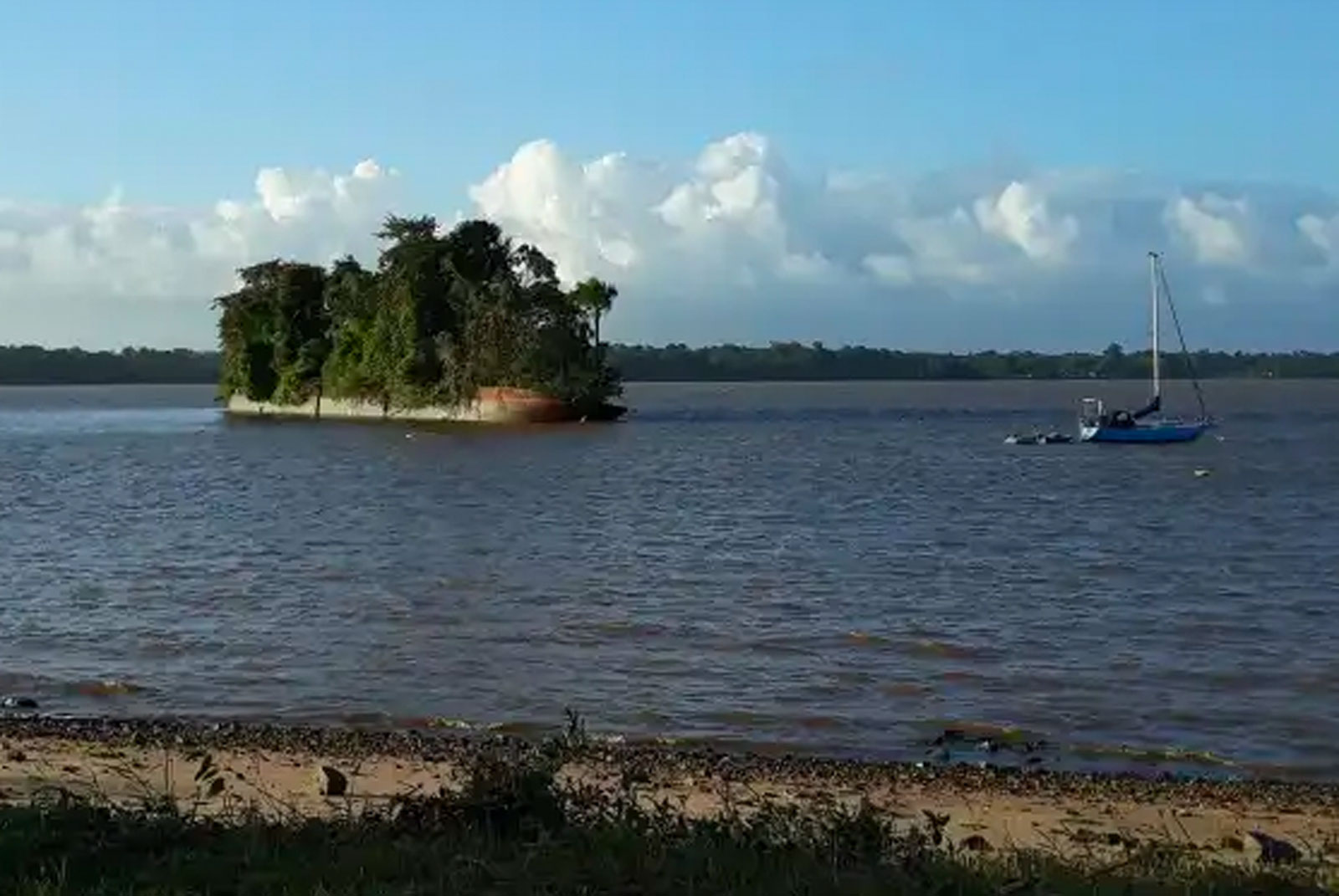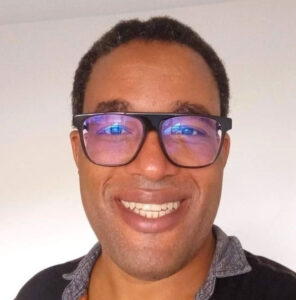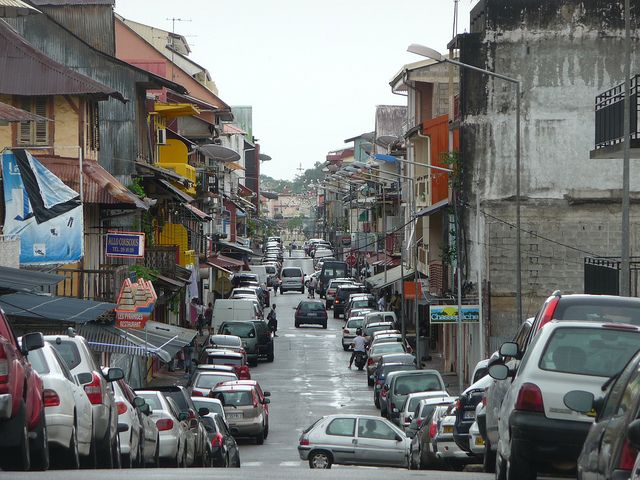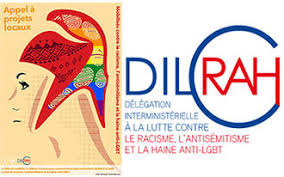My Caribbean life, marred by LGBT+ racism, classism, neocolonialism and white supremacy
Moïse Manoël-Florisse, is an African-Caribbean online journalist keeping an eye…
Activist Moïse Manoël-Florisse analyzes flaws in the LGBT+ rights movement

The LGBTI+ rights movement suffers from racism, classism, neocolonialism and white supremacy, particularly in former colonies in the Global South, says LGBTI+ activist, web journalist and former French Guiana resident Moïse Manoël-Florisse.
In the following interview, newly translated here from the French magazine Komitid, he focuses on those problems at a time when Victor Madrigal-Borloz, the U.N.’s independent expert on sexual orientation and gender identity, is preparing a report to the General Assembly on the historic and modern impacts of colonialism on LGBT people and their human rights.
Manoël-Florisse, who moved to safety in mainland France after he was attacked by a knife-wielding homophobe in French Guiana in 2021, wrote about the attack in the article “French Guiana: “500 euros, the price of my life!”
He says, “Racism amongst the LGBT+ community doesn’t have to stay a secret. Especially in territories rule by France outside of Europe.”

Historic wreck of the steamship Edith Cavell (left), stranded in 1924 in Saint-Laurent-du-Maroni, French Guiana. (Photo courtesy of @moisemanoelflorisse)
Moïse Manoël-Florisse: ‘I blame the white LGBTI community in Guyana for a double standard when it comes to homophobia’

Moïse Manoël-Florisse is an LGBTI+ activist and web-journalist for the E-website 76crimes. He also coordinates the activities of the Global Interfaith Network for the English- and French-speaking Caribbean. On April 6, 2021, he was the victim of a violent and homophobic attack in French Guiana.
He answers the questions of Komitid and does not mince his words.
Komitid: Can you tell us what your function is at Erasing 76 Crimes?
Moïse Manoël-Florisse: I am a web journalist at 76crimes, where I cover news related to human rights violations in the francophone space. I do interviews at the request of activists and, after covering Senegal extensively for the past two years, I am now devoting myself to work in the French- and Creole-speaking Caribbean.
Separately, I work to coordinate activities of the Global Interfaith Network for the Anglophone and Francophone Caribbean basin. I try to highlight the activism of Afro-descendant LGBTI people in the region, as they are often politically and economically marginalized, or even silenced, including in territories where black people are ultra-majority. This sometimes earns me the label of anti-white racist or black supremacist by people who want to silence me.
Besides my commitment o the rights of LGBTI people at the international level, I tutor neighborhood young people in through an association in the Val d’Oise area of France. It seems important to me to be able to invest myself with racialized children, in order to encourage their schooling while preparing them to live in an apartheid society that does not acknowledge being apartheid, where racism appears on prime-time TV.
My commitment is intersectional and I have time to spare, because life is difficult here in the Paris suburbs for black gay or bi men who, like me, are in-between ages and have no stability. So instead of being unemployed at home, I try to turn this unwanted free time into a strength, although this situation of a graduate looking for a stable job is extremely uncomfortable for me, given my experiences.
In the year that I have been in France, I cannot say that I have succeeded in finding my place on the Old Continent. I am black French, I come from the French Overseas Territories, so I am not an immigrant and yet, here, I do not feel integrated into society, even though I know its customs. I have only one desire — to cross the Atlantic again, in the short or medium term, to be able to embrace the landmarks that are mine, as well as a warmer and less racist environment than in Paris.
A little more than a year ago, you suffered a homophobic attack in French Guiana. Since then, your attacker, a minor at the time of the incident, was sentenced to 500 euros in damages. What was your reaction to this sentence?
I was taken aback, stunned and, to put it bluntly, flabbergasted that he was given such a trivial penalty. My disappointment was mixed with a feeling of rage, bitterness and anger towards the court system. One does not stop homophobia with this type of decision. Besides, I have not yet received my compensation.

I am absolutely not a “left-wing” person, judging by Parisian standards. For me, as a Caribbean person, the place for delinquents, criminals and those who try to take the lives of others, other than in self-defense, is in prison, with no reduction of the sentence possible.
When you are a minor, you know what you are doing and you know the moral distinction between doing good and doing evil. However, by dint of laxity, we are witnessing a “weakening of values” since, in the end, judges give the idea that trying to mutilate an individual does not cost much from a social point of view to the aggressor. For me, being a person of faith and spirituality, we are witnessing the drifts of a judicial system that, without wanting to, encourages recidivism, as much as it trivializes evil. The justice of minors should be reviewed from top to bottom and I call for more harshness.
Currently, it seems as if we are witnessing a justice system that does not protect disadvantaged people like me. Indeed, if one is rich, one can live and maintain an ethnic, racial and social milieu and be able to live in neighborhoods where there are numerous police rounds, even gated communities, with their share of private security guards. On the other hand, when you are a poor black person, living a precarious existence in a large village in French Guiana, you do not have the economic, human and material means to afford all these protective barriers, and it is in this sense that “hard” justice becomes indispensable.
Unfortunately, the current French president seems to be far from this type of concern and does not seem to understand the security needs of modest people from working class and rural areas.
In an interview in Erasing 76 Crimes, you had some very harsh words about the white LGBTI community in French Guiana, whose ethnocentrism you denounce. What exactly do you reproach it with?
I criticize the white LGBTI community of French Guiana for a double standard in terms of homophobia, with a selective empathy towards its own people first and foremost, as well as a characterized indifference, racialized, racist, even political in my example. And I consider that there was non-assistance to a person in danger. This is a very hard line that I hold, but I’m sticking with it. Let me explain.
Experience is a source of empirical knowledge and in my own observations, I have seen the explicit rejection of the concept of intersectionality by the white LGBTI community in Guyana. I must say that in a territory as multi-ethnic and multicultural as French Guiana, this is concerning. It goes hand in hand with the rejection of other narratives that do not come from their own Parisian, French-centric corpus of identity and culture. It’s clearly a colonial approach when one has just set foot in the Amazon and maintains one’s European culture and values as an example, without allowing any dialogue with the culture and values of the host societies.
Many of the metropolitans who come to French Guiana do so in order to collect the generous bonuses granted to French civil servants there, as part of a settlement immigration that does not say its name. Thus, all other social interactions and political thinking of the white LGBTI community in French Guiana stems from this status as a pampered racial minority whose standard of living is significantly higher than the rest of the non-white French-Guianese population. In this context, the white LGBTI community in French Guiana has no interest in my thoughts or my safety as an obscure Afro-Caribbean doctoral student questioning the political and social order that favors them.
In relation to my assault, I can say that the racism of the white LGBTI community in French Guiana and its political motivations to ignore my distress have greatly contributed to exacerbate the homophobia of which I was the target in Saint-Laurent-du-Maroni, French Guiana. As soon as I moved there in June 2020, I was subjected to vexatious acts and threats. This was happening on a daily basis in full view of everyone, because Saint-Laurent is a sort of big town.
Instead of reacting, the white LGBTI community of French Guiana, which occupies the main part of the LGBTI organizations present in my city at the time, showed me its indifference, thus plunging me into an isolation and a loneliness that preceded the face-to-face meeting with my stalker, who became my knife-wielding aggressor. Yet being in the minority should have brought us together as LGBTI people, beyond our differences in skin tone.
While I could have lost my sight or ended up with a severed femoral artery, a policy of reporting and escalating the low and intermediate signals of homophobia could have been undertaken in a dynamic way, especially since the two LGBTI organizations present in Saint-Laurent-du-Maroni were and are recipients of public subsidies. The attack on me was avoidable; it could have been prevented by a community-based and non-racist approach.
In all of this, I cannot avoid thinking that I could have died and lost my life tragically. To this day, it haunts my nights when I think about it.
So when I had suicidal thoughts after the attack, I found no one there to express my pain to. Morbid impulses swept over me with anxiety, while I thought of grabbing a jerry can of gasoline in order to set myself on fire. It was finally in a flash of lucidity between two dark thoughts that I found the strength to grab my cell phone and get in touch with a volunteer from the Refuge’s national crisis line in France, in the middle of the night.
Similarly, when I needed to relocate and leave French Guiana, each time, solutions came from outside. I was able to benefit from a relocation program in the Paris region with the support of a Washington-based organization, Freedom House, which runs the Dignity For All Fund to help LGBTI activists threatened with death.
Once I arrived in France, it was thanks to [the French LGBTQ rights associations] ADHEOS, Mousse and Stop Homophobie that I was able to take legal action to bring my tormentor before the courts in French Guiana.
At each step, the solutions never came from French Guiana. However, it is not for lack of having launched the alarm. It makes you wonder what the DILCRAH funding is used for in order to fight and prevent homophobia on the spot.
What do you expect from the public authorities but also from the DILCRAH, which has in its missions the fight against LGBTphobia, to help LGBTI+ people in French Guyana and in the overseas territories? [DILCRAH is a French government agency, the Interministerial Delegation to Combat Racism, Antisemitism and Anti-LGBT Hate.]

For me, the public authorities are discredited in overseas territories and beyond because of their failure to challenge intersecting types of discrimination, which seems to be a blind spot in the DILCRAH’s thinking.
In French overseas territories, DILCRAH is content to address violence against women, including migrant women, or violence related to sexual orientation or gender identity. However commendable this may be, it is not the most structuring discrimination within French overseas societies.
In French Guiana, Guadeloupe and elsewhere in the French Overseas Territories, DILCRAH has no ambitions in the fight against racism, because the authorities implicitly recognize that the maintenance of the French presence requires the maintenance of a hierarchy based on skin color in which all the economic power and the upper echelons of the administration are in the hands of a loyal white minority, when it is not in debt.
When recruitment for well-paid positions of responsibility in the private sector is done thousands of kilometers away from Pointe-à-Pitre, Guadeloupe; Cayenne, French Guiana; or Fort-de-France, Martinique, to the detriment of Antillean, French-Guianese or diaspora graduates, DILCRAH says nothing.
The primary discrimination in the overseas territories is racial and economic in nature and the people of these territories understand that their struggles for justice will not be led by DILCRAH.
In this context, the organizations that fight for LGBTI people in the West Indies or in French Guiana collaborate with DILCRAH, either out of pragmatism or out of tacit adherence to neo-colonialism and systemic racism.
Finally, I observe that pro-LGBTI organizations that work with DILCRAH often turn to them by default because too often it is difficult to talk about homophobia and the convergence of struggles with other local social advocates, with the exception of some women’s associations.




Appeal to Uganda president: Save lives, ‘lead from the front’ by rejecting anti-gay bill